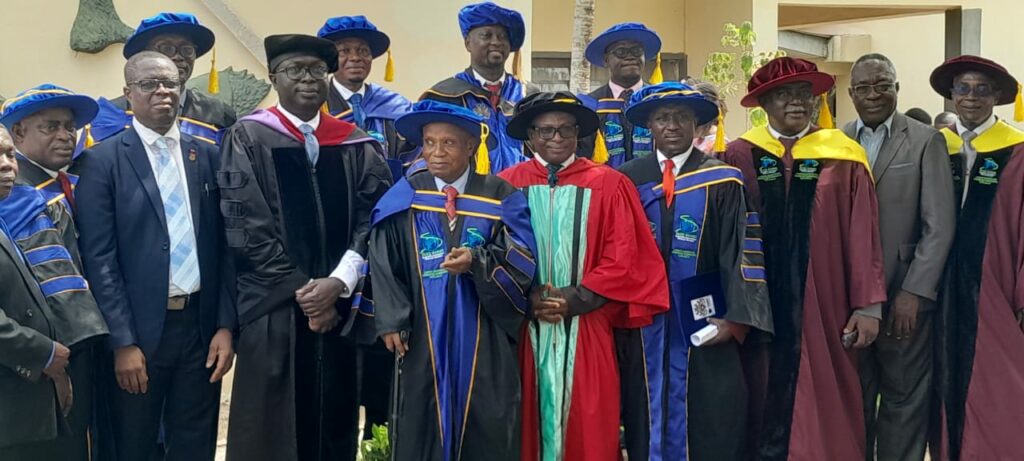Reform rote education to address 21st Century problems – Prof Owusu
 Professor James Owusu, the Chief Executive of the Leyden Educational Consultancy, UK, has advocated reforms in the Ghanaian education system to instill “21st Century skills” in the youth to help solve emerging societal problems.
Professor James Owusu, the Chief Executive of the Leyden Educational Consultancy, UK, has advocated reforms in the Ghanaian education system to instill “21st Century skills” in the youth to help solve emerging societal problems.
He bemoaned the rote learning system in Sub-Saharan Africa, particularly Ghana, which purportedly produced substandard graduates and dragged development.
The result was the overreliance on the West for solutions to local problems, a situation, he noted, must change.
Prof Owusu made the call at the second Postgraduate graduation ceremony of the UK-USA Universities partnership research programme for Global Education and Training on Project Design and Community Development in Cape Coast.
The programme, among other things, seeks to empower the youth to maximise their potentials for community development in the face of emerging sophisticated problems.
Eight graduates were conferred with Doctor of Philosophy (PhD) in Social Entrepreneurship degree.
“We should not be dependent on western skills and technocrats coming to tell us what to do,” he said.
“We should… get to the point where we can say to ourselves that our young graduates can make an impact in our local communities. …not only solving problems but using local materials, tools and stuff to enhance development.”
The Scientific Animations Without Borders (SAWBO) and its local partners, Centre for Learning and Community Development (CLCD) are executing the project across Sub-Saharan Africa.
Prof Owusu said it was the responsibility of every PhD holder to solve problems, adding: “If you hold a PhD and you cannot solve problems, then there is a question mark with your PhD.”
“With your wide range of skills based on your research programmes, these skills should be used to solve problems within our local communities.”
“Let us support our local communities with our skills.”
The high poverty rate in Sub-Sahara Africa, with Ghana no exception, was attributable to the lack of relevant skills, whereas the lack of creativity and innovation had become a major challenge, Prof Owusu said.
He expressed worry over the “very low literacy rate in the Ghana,” and noted that only 38 per cent of children up to age 12 could read and write.
Dr Jonathan Mensah Akyeampong, the General Manager, Administration and Human Resource, SSNIT, stressed the need for graduates to use their skills to create employment to minimise the unemployment rate in West Africa.
He said the project was committed to high academic quality and was working to make higher education more accessible.
“We must be problem solvers as you go home into your communities,” he said, and assured the graduates that the partners were ready to support any venture they went into.
Prof Samuel Amoa-Mensa, the Country Director of CLCD-SAWBO for Sub-Sahara Africa, encouraged citizens to contact the project to benefit from the various programmes.
That, he said, would enable them to acquire the relevant entrepreneurial skills to employ themselves and others.
“Very soon, I am going to train about 20 young people in dressmaking for free. The world is changing and you should change with it.”
Source: GNA
